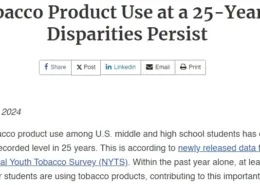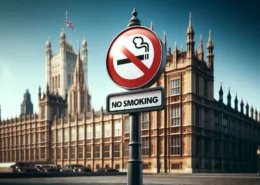Brazilian Tax Authority Intensifies Enforcement, Suspends CNPJs of Stores Selling E-Cigarettes
New Measures Target Clandestine Sale of Products Prohibited by Anvisa Since 2009
The Brazilian Federal Revenue Service (Receita Federal) has intensified its enforcement efforts against the sale of electronic cigarettes, which have been prohibited in Brazil since 2009 by determination of the National Health Surveillance Agency (Anvisa). The clandestine sale of these products, openly displayed in shop windows of popular malls and commercial centers, now faces severe penalties, including the suspension and even cancellation of the National Registry of Legal Entities (CNPJ) for repeat offenders.
The new measures, implemented in October, have already resulted in the suspension of 22 CNPJs in operations carried out in São Paulo. The Receita Federal is also expanding efforts to combat illegal trade in 2025, including actions against small merchants without business registration, seizure of goods, and the possible opening of criminal proceedings.
This year, the volume of e-cigarette seizures reached a record high of R$ 240 million, nearly four times the value recorded in 2023 (R$ 63 million).
Suspension of CNPJ Aims to Curb Recidivism
Raphael Eugênio de Souza, general coordinator of Combating Smuggling and Embezzlement at the Receita Federal, explains that the punishment of companies seeks to curb recidivism. “The suspension of the CNPJ prevents the company from functioning normally. It cannot move bank accounts, issue invoices, or pay suppliers,” he states.
In addition to the economic impact, the Receita Federal warns of the connection between the illegal e-cigarette market and the financing of organized crime. Small establishments, by purchasing goods from smugglers, fuel criminal networks that diversify their illicit activities to increase profits.
Health Risks of E-Cigarettes
The sale of e-cigarettes concerns specialists due to the potential for chemical dependence and exposure to carcinogenic substances. Margareth Dalcolmo, president of the Brazilian Society of Pulmonology and Tisiology, emphasizes that the devices can cause irreversible damage to the lungs, including alveolar lesions and an increased incidence of cancer.
“The lung does not regenerate. These consequences can be serious and permanent,” she warns.
Combating Online Sales
Another challenge faced by the government is the sale of e-cigarettes over the internet, on digital platforms, and through apps. Studies to intensify actions against this market are underway, with the aim of closing in on clandestine distribution networks.
As the Brazilian authorities ramp up their efforts to combat the illegal sale of e-cigarettes, it is clear that a multi-faceted approach involving enforcement, penalties, and public awareness will be crucial in addressing this growing concern and protecting public health.
- Is It Illegal to Vape or Smoke While Driving in Minnesota? - August 15, 2025
- American Airlines Vaping Passenger Alleges Assault in Police Report - August 15, 2025
- NEXA PIX 35K Disposable Vape with Crystal Tank Review - August 15, 2025








